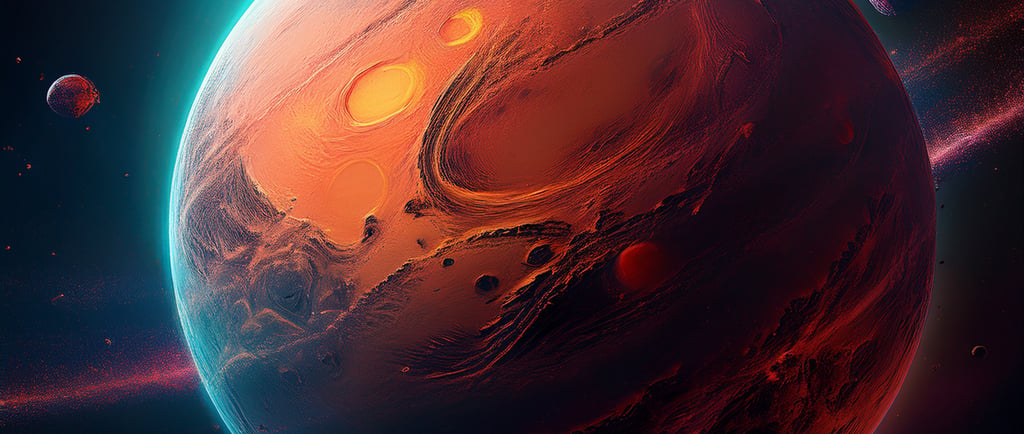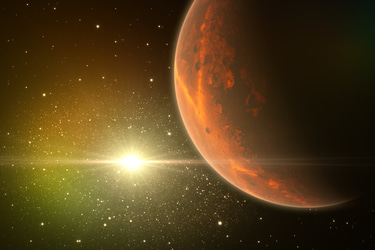Corot-27b: A Massive and Dense Exoplanet


Introduction to Corot-27b
Corot-27b is a captivating exoplanet that has garnered significant attention in the field of astronomy. Located an impressive distance of approximately 1,035 plus 66 parsecs from Earth, it resides in the Serpens constellation. This massive and dense planet offers an interesting case study due to its short orbital period and unique characteristics.
Characteristics of Corot-27b
One of the most striking features of Corot-27b is its remarkable density. The planet is classified as a 'hot Jupiter', signifying that it resembles Jupiter but orbits its star much closer, resulting in elevated temperatures. Discovered using the transit method, researchers observed Corot-27b as it passed in front of its host star, revealing crucial information about its size and composition. The planet's thick, gaseous atmosphere, coupled with its significant mass, raises intriguing questions about the formation and evolution of such celestial bodies.
Orbital Dynamics and Its Implications
Corot-27b has a notably short orbital period, completing a full revolution around its star in just a few days. This swift orbit suggests that it is subjected to intense radiation and gravitational forces, further contributing to its extreme conditions. This rapid orbit means that Corot-27b exists in a delicate balance; its proximity to the star forces it into a state of constant heating, which could lead to atmospheric degradation over time. The dynamics of Corot-27b may provide insights into the interplay between stellar radiation and planetary atmospheres, allowing scientists to explore questions regarding habitability and planetary survival in hostile environments.
The Importance of Studying Exoplanets
Understanding planets like Corot-27b is crucial for the broader context of planetary science. Observations of such massive and dense exoplanets help astronomers refine models of planet formation and evolutionary pathways. By studying locations of distant worlds, astronomers can draw comparisons with our solar system, enhancing our understanding of planetary systems as a whole. Moreover, as we strive to identify potentially habitable exoplanets, research into planets like Corot-27b aids in refining our search strategies and innovative detection methods.
Conclusion
Corot-27b stands as a remarkable example of the diversity of exoplanets that exist in our universe. Its massive, dense structure, combined with its short orbital period, raises significant questions about the formation and sustainability of planets under extreme conditions. Research into exoplanets like Corot-27b is essential for expanding our knowledge and understanding of the cosmos, paving the way for future discoveries and continued exploration.
